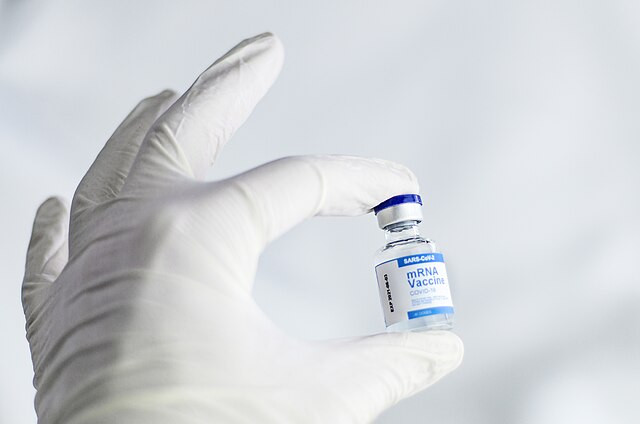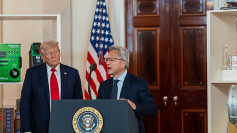The U.S. Department of Health and Human Services and the National Institutes of Health on Thursday announced the launch of "Generation Gold Standard," a multiyear vaccine initiative aimed at developing universal immunizations capable of protecting against multiple strains of pandemic-prone viruses, including influenza and coronaviruses.
The project is expected to receive $500 million in government investment, according to internal emails reviewed by The Wall Street Journal.
"Generation Gold Standard is a paradigm shift," said NIH Director Dr. Jay Bhattacharya in a statement. "It extends vaccine protection beyond strain-specific limits and prepares for flu viral threats - not just today's, but tomorrow's as well - using traditional vaccine technology brought into the 21st century."
The program is being developed by the NIH's National Institute of Allergy and Infectious Diseases and will utilize a beta-propiolactone (BPL)-inactivated, whole-virus platform. The BPL platform is designed to offer broad-spectrum coverage against respiratory viruses such as RSV, metapneumovirus, and parainfluenza, in addition to influenza and coronavirus strains. It is also engineered to avoid triggering antigenic drift-a common limitation of traditional flu vaccines.
"Every innovation in vaccine development must be grounded in gold standard science and transparency and subjected to the highest standards of safety and efficacy testing," said HHS Secretary Robert F. Kennedy Jr. in a statement.
The first clinical trials for a universal influenza vaccine under the Generation Gold Standard platform are expected to begin in 2026, with a potential FDA decision in 2029. The BPL-1357 intranasal flu vaccine is currently undergoing advanced trials and is also expected to seek FDA review by the end of the decade.
Funding for the initiative is expected to be routed through the Biomedical Advanced Research and Development Authority (BARDA), a division of HHS that supports public health preparedness and countermeasures. A spokesperson for HHS said the project "delivers a cost-effective, accountable alternative to COVID-19 vaccines and therapeutics," though the agency has not yet disclosed exact budget allocations.






